Regulation
SEC Chair Admits Fault In DebtBox Case

In the Gary Gensler hearing today, United States Securities and Exchange Commission (SEC) Chairman was sharply criticized by lawmakers, including GOP Majority Whip Tom Emmer, over the SEC’s handling of the case involving Digital Licensing Inc., also known as DebtBox.
The case, which involved the freezing of the company’s assets based on SEC allegations, was dismissed after a federal judge found the agency had engaged in “bad faith conduct.” Judge Robert Shelby ordered the agency to pay approximately $1.8 million in attorney and receiver fees due to procedural missteps.
SEC Chair Faces Scrutiny Over DebtBox Case
During the hearing, Tom Emmer questioned Gary Gensler about the United States Securities and Exchange Commission’s approach in the DebtBox case, highlighting what he described as mishandling and regulatory overreach. Emmer called the SEC’s actions “destructive,” pointing out that the commission’s decision to freeze DebtBox’s assets was based on inaccurate information, leading the court to impose sanctions on the SEC.
🚨NEW: @GOPMajorityWhip blasts @GaryGensler about the @thedebtbox case, asking if he was embarrassed about it.
Gensler responded: “The situation was handled badly…”
Emmer used his five minutes to scorch Gensler’s approach to regulating digitals assets. Gensler was noticeably…
— Eleanor Terrett (@EleanorTerrett) September 24, 2024
Gensler acknowledged the situation was “handled badly,” expressing his frustration as Emmer continued to press on the agency’s approach to regulating digital assets.
Judge Shelby’s ruling, citing the SEC’s bad faith conduct, ordered the SEC to cover legal costs amounting to roughly $1.8 million. This included approximately $1 million in attorney fees and $750,000 for receiver fees. The judgment followed a court finding that the agency’s actions in obtaining a temporary restraining order to freeze DebtBox’s assets were unjustified, and the case was ultimately dismissed without prejudice.
Hester Peirce Criticizes SEC’s Regulatory Approach
Commissioner Hester Peirce was vocal in her criticism of the SEC’s stance on cryptocurrency regulation, directly challenging Gensler’s leadership.
Peirce argued that the agency has taken a legally imprecise approach, which has contributed to a lack of clarity within the industry. She stated, “We have fallen down on our duty as a regulator not to be precise,” emphasizing that this ambiguity has left stakeholders uncertain about the SEC’s regulatory boundaries.
Peirce further criticized the United States Securities and Exchange Commission and practice of regulation by enforcement, describing it as inefficient and unhelpful for providing market participants with clear guidelines. She suggested that the agency should engage in more fact-finding activities, such as roundtables, before making significant regulatory decisions, rather than relying heavily on enforcement actions to set precedents.
Brad Sherman and Patrick McHenry Address Crypto Regulation
Brad Sherman was among the first to raise the issue of cryptocurrency during the hearing, expressing concerns about the lack of regulatory clarity. He emphasized that while the SEC has the authority to protect investors, the commission should strive for more explicit guidance on digital assets. Sherman’s comments followed remarks by Patrick McHenry, who also questioned the SEC’s handling of crypto assets, specifically mentioning Ether, the native token of the Ethereum blockchain.
McHenry confronted Gensler about the various terms used by the SEC to describe digital assets, including crypto tokens and digital asset securities, questioning whether the agency distinguishes between these terms. The SEC Chair responded by insisting that the laws are clear, but McHenry pushed back, arguing that the SEC’s inconsistent terminology reflects a broader lack of regulatory clarity.
In response to criticism, Gary Gensler maintained that the SEC remains “merit neutral” on blockchain technology, stating that the technology itself does not alter the fundamental economics of investments. He reiterated that the United States Securities and Exchange Commission’s role is to ensure compliance with existing laws rather than to evaluate the merits of specific investments.
However, Gensler’s defense did little to quell the concerns raised by lawmakers and SEC commissioners, who continued to press for clearer guidelines on the regulatory treatment of digital assets.
Disclaimer: The presented content may include the personal opinion of the author and is subject to market condition. Do your market research before investing in cryptocurrencies. The author or the publication does not hold any responsibility for your personal financial loss.
Regulation
US SEC Acknowledges Fidelity’s Filing for Solana ETF
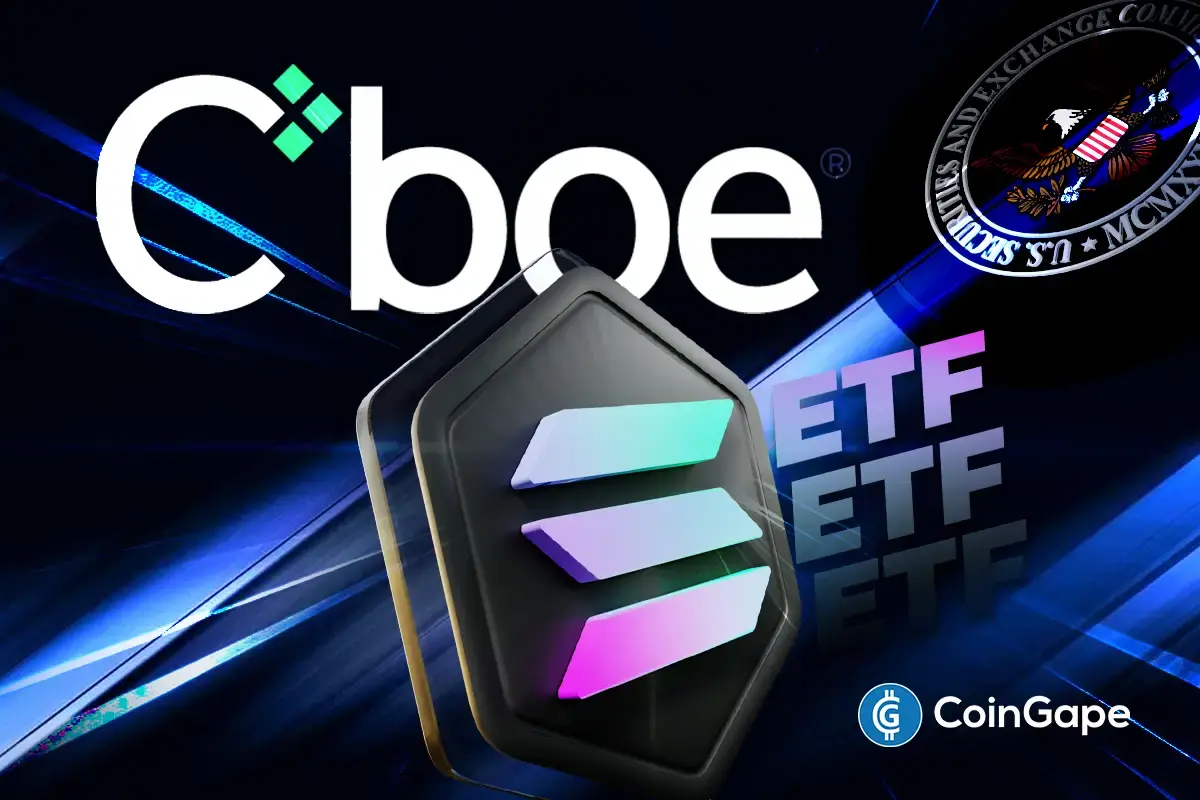
The U.S. Securities and Exchange Commission (SEC) has formally acknowledged the filing for Fidelity’s spot Solana (SOL) Exchange-Traded Fund (ETF).
This marks a key development in the financial industry, as Fidelity seeks to list its Solana ETF on the Cboe BZX Exchange. The acknowledgment comes after Fidelity submitted a proposed rule change, paving the way for the potential approval of the product.
Fidelity’s Spot Solana ETF Proposal
The SEC’s acknowledgment follows Fidelity’s filing to list and trade shares of the Fidelity Solana Fund under the Cboe BZX Exchange. The proposed rule change, initially submitted on March 25, was later amended on April 1, 2025, to clarify certain points and add additional details.
The amended proposal aims to list the Solana ETF under BZX Rule, which pertains to commodity-based trust shares. According to the Cboe BZX Exchange, Fidelity plans to register the shares with the SEC through a registration statement on Form S-1.
Fidelity’s experience with crypto ETFs, having launched the Fidelity Wise Origin Bitcoin Fund (FBTC) and the Fidelity Ethereum Fund (FETH), has prepared it for this new initiative. FBTC has drawn substantial interest, accumulating nearly $17 billion in assets, while FETH currently manages around $975 million.
This Is A Developing News, Please Check Back For More
Disclaimer: The presented content may include the personal opinion of the author and is subject to market condition. Do your market research before investing in cryptocurrencies. The author or the publication does not hold any responsibility for your personal financial loss.
Regulation
US Senate Banking Committee Approves Paul Atkins Nomination For SEC Chair Role
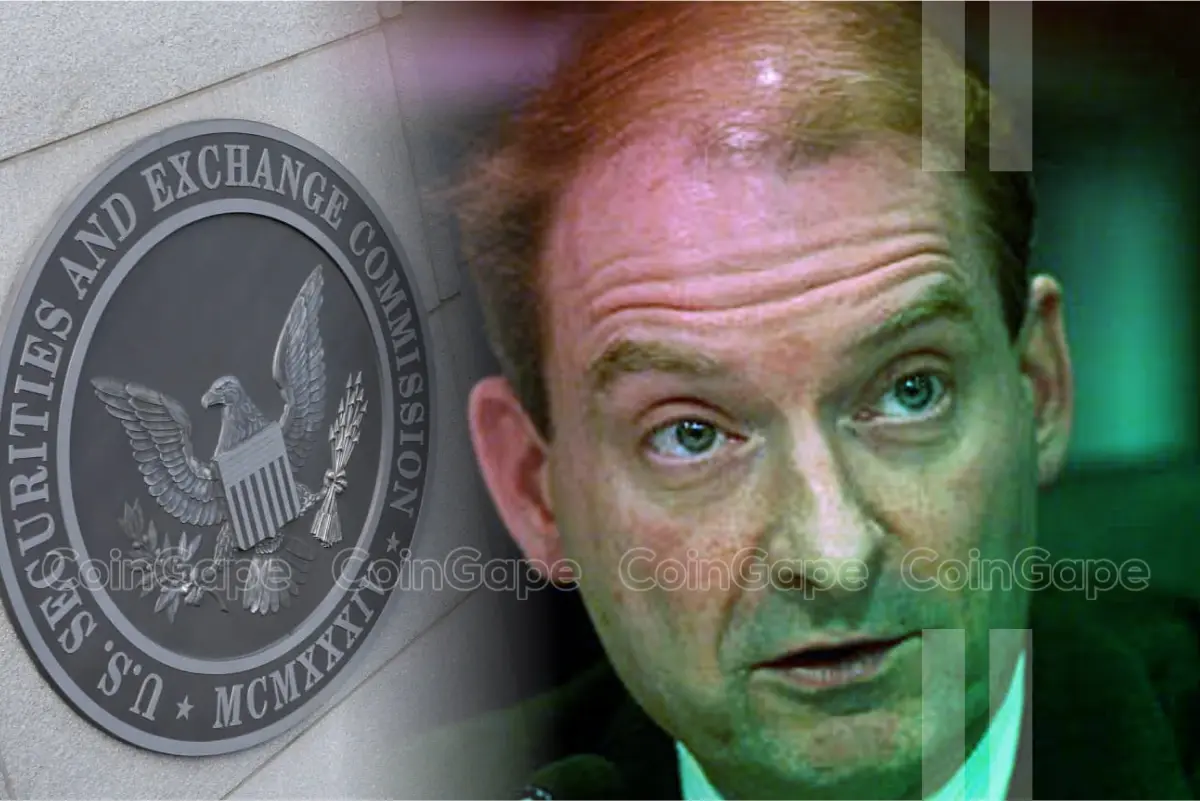
The U.S. Senate Banking Committee has voted to approve Paul Atkins’ nomination for the role of Chair of the Securities and Exchange Commission (SEC). The vote, which took place on Thursday, passed with a narrow margin of 13-11, along party lines.
Paul Atkins, nominated by President Donald Trump, now moves one step closer to taking over the top regulatory position at the US SEC.
Senate Banking Committee Approves Paul Atkins Nomination
Paul Atkins’ nomination for SEC Chair has received approval despite sharp opposition from Democratic members of the Senate Banking Committee. The vote was entirely split, with Republicans supporting Atkins and all Democrats opposing the decision.
This partisan divide highlights the contentious nature of Atkins’ confirmation, which had been under scrutiny for several reasons.
The committee’s approval now clears the path for Atkins to proceed to the full Senate for a final confirmation vote. Given the Republican-controlled Senate, it is widely expected that Atkins will secure the necessary votes to take over the SEC leadership. With Republicans holding a 53-47 majority in the Senate, the confirmation process is anticipated to move forward swiftly.
This Is A Developing News, Please Check Back For More
Disclaimer: The presented content may include the personal opinion of the author and is subject to market condition. Do your market research before investing in cryptocurrencies. The author or the publication does not hold any responsibility for your personal financial loss.
Regulation
Kraken Obtains Restricted Dealer Registration in Canada

Cryptocurrency exchange Kraken has obtained a Restricted Dealer registration in Canada. The registration comes after completing a pre-registration undertaking (PRU) process with Canadian authorities.
The exchange has also announced the appointment of Cynthia Del Pozo as its new General Manager for North America. Del Pozo will oversee Kraken’s growth initiatives in Canada.
Kraken Completes PRU Process In Canada
Kraken’s Restricted Dealer registration marks the completion of a thorough pre-registration undertaking (PRU) process with Canadian regulators. The registration places Kraken under the supervision of the Ontario Securities Commission (OSC). This oversight ensures users have access to secure crypto products within a properly regulated local ecosystem.
According to the Canadian Securities Administrators (CSA), the Restricted Dealer registration is one of eight firm registration types in Canada. This particular classification is used for firms that “do not quite fit under any other category.” It also comes with specific requirements and conditions set by securities regulators.
Kraken’s regulatory achievement comes during a period of change in the Canadian crypto sector. Just months earlier, competitor Gemini exchange announced its departure from the Canadian exchange market by the end of 2024. This was a move that surprised many and raised questions about cryptocurrency regulation clarity in the country.
Kraken Introduces New Canadian GM
Del Pozo has joined Kraken to lead its Canadian operations as the new General Manager for North America. She has nearly 15 years of experience in corporate development, operations, and fintech consulting. Del Pozo will help to guide Kraken’s expansion across Canada during this important phase of crypto’s development in the region.
“Canada is at a turning point for crypto adoption, with a growing number of investors and institutions recognizing digital assets as a vital part of the financial future. I’m thrilled to join Kraken’s mission at this critical moment, and to lead our expansion efforts, ensuring we continue to serve our clients long-term with innovative and compliant products,” said Del Pozo.
In her role, Del Pozo will focus on strengthening Kraken’s regulatory relationships and also scaling the company’s presence throughout North America.
Del Pozo also commented on the registration achievement: “This Restricted Dealer registration is testament to the high bar Kraken has always set for consumer protection, client service, and robust security. We’re excited to continue expanding our world-class investment platform and to deliver innovative products that provide real-world utility to Canadians.”
The Exchange’s Continued Growth In Canada
Over the past two years, the cryptocurrency exchange has shown steady expansion in Canada while working through the PRU process with regulators. During this period, the exchange has doubled its team size and monthly active users.
According to the official blog post figures, the firm now has more than $2 billion CAD in total client assets under custody. Kraken has also increased support for some of the most popular cryptocurrencies. It provides several CAD spot trading pairs that enable Canadians to trade crypto without paying expensive foreign exchange fees.
According to Innovative Research Group’s 2024 Investor Survey, 30% of Canadian investors currently own or have owned cryptocurrencies. Likewise, a KPMG Canada survey discovered that 30% of Canadian institutional investors now have exposure to cryptocurrencies, which means widespread adoption across investor types.
Disclaimer: The presented content may include the personal opinion of the author and is subject to market condition. Do your market research before investing in cryptocurrencies. The author or the publication does not hold any responsibility for your personal financial loss.
-
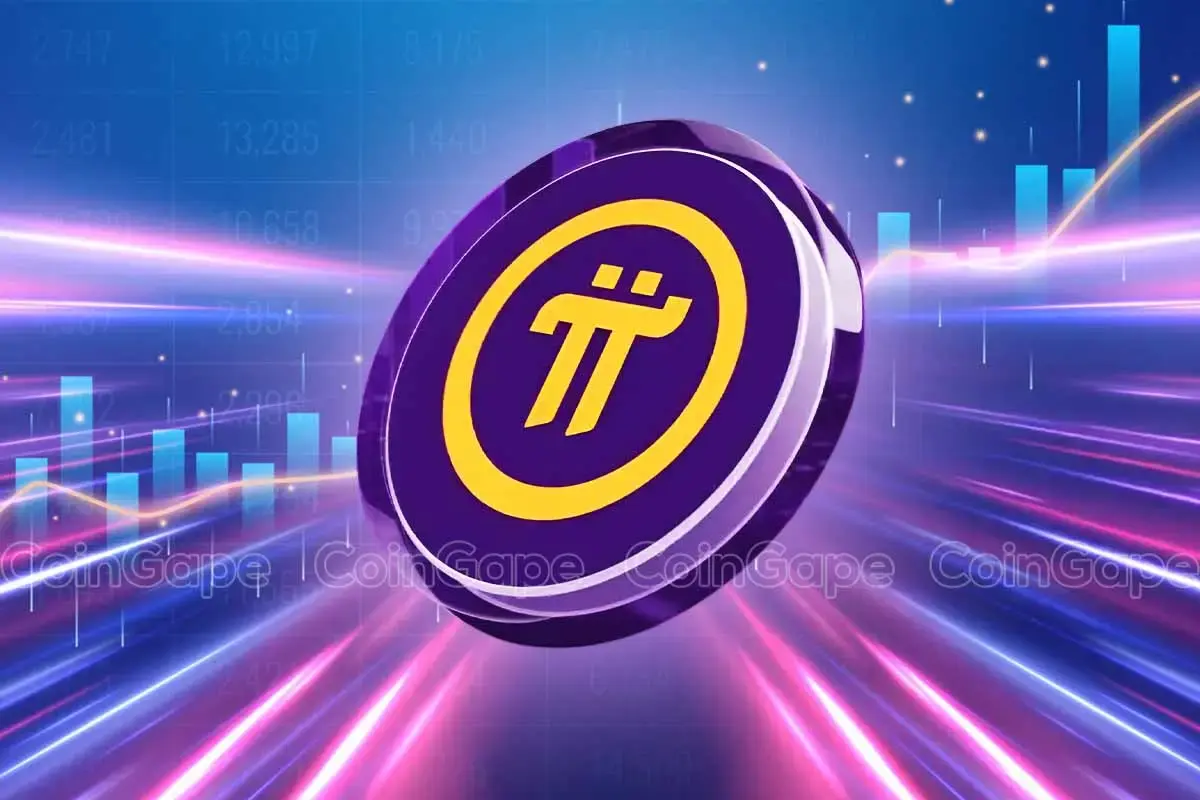
 Altcoin23 hours ago
Altcoin23 hours agoBinance Sidelines Pi Network Again In Vote To List Initiative, Here’s All
-

 Altcoin20 hours ago
Altcoin20 hours agoAnalyst Forecasts 250% Dogecoin Price Rally If This Level Holds
-

 Market23 hours ago
Market23 hours agoXRP Price Reversal Toward $3.5 In The Works With Short And Long-Term Targets Revealed
-

 Market20 hours ago
Market20 hours agoXRP Price Under Pressure—New Lows Signal More Trouble Ahead
-

 Market15 hours ago
Market15 hours agoIP Token Price Surges, but Weak Demand Hints at Reversal
-

 Market19 hours ago
Market19 hours agoCardano (ADA) Downtrend Deepens—Is a Rebound Possible?
-

 Market14 hours ago
Market14 hours agoHBAR Foundation Eyes TikTok, Price Rally To $0.20 Possible
-
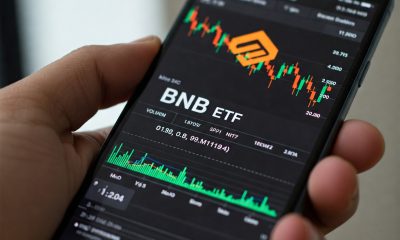
 Altcoin17 hours ago
Altcoin17 hours agoVanEck Seeks BNB ETF Approval—Big Win For Binance?







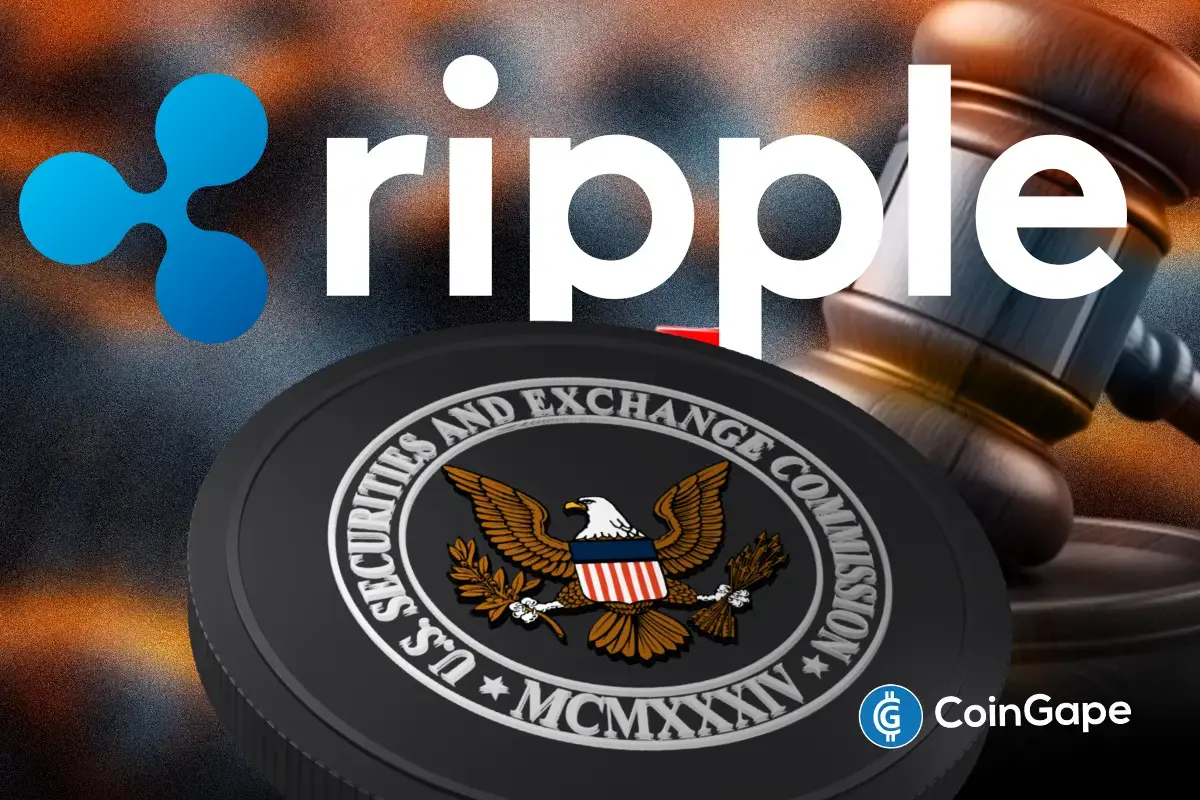



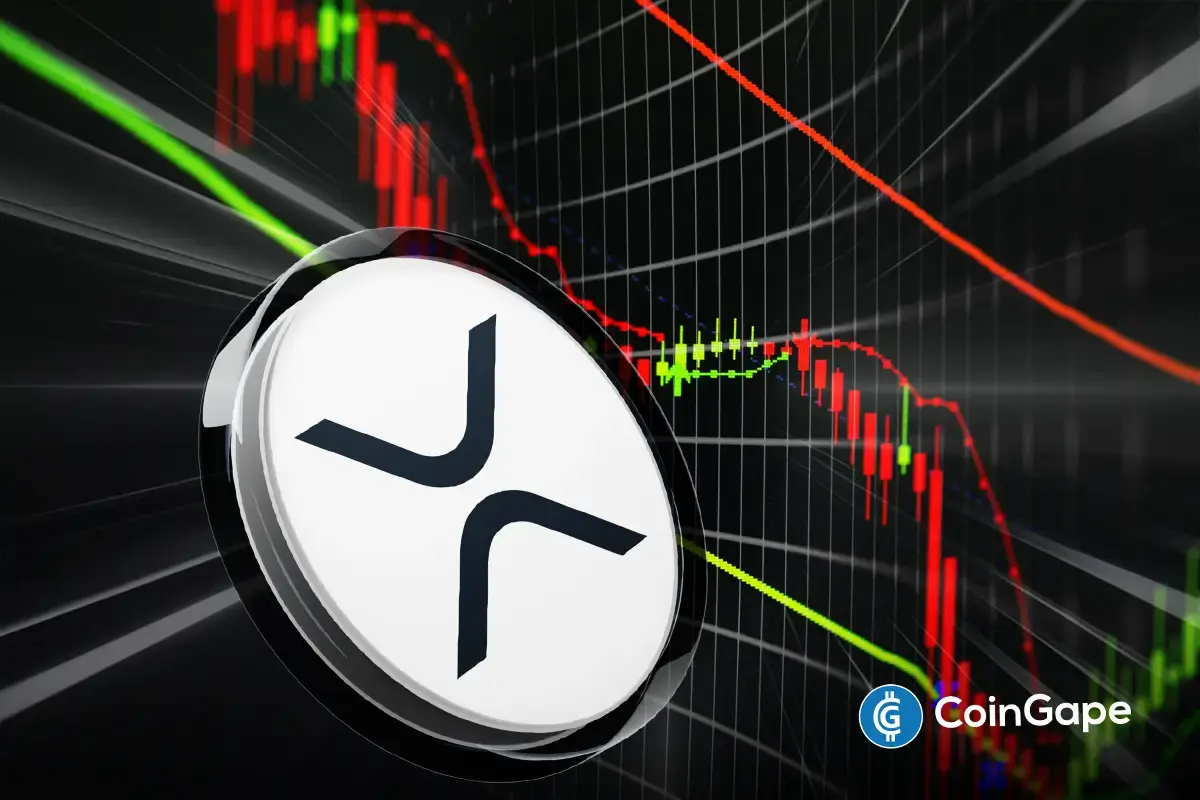








✓ Share: